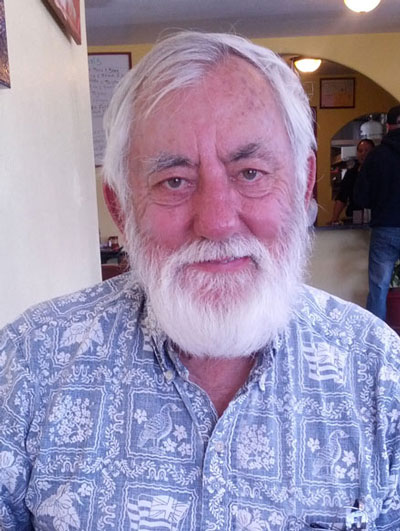
Photo courtesy Peter Bryant

Photo courtesy Peter Bryant
Dr. Peter Bryant, research professor, School of Biological Sciences, University of California, Irvine, is the next guest speaker in the Idyllwild Community Center’s Speaker Series, and he is fond of and a great admirer of spiders, both for their building skills and their usefulness within terrestrial food webs.
He noted that spiders are efficient controllers of insects, many of which are agricultural pests. “They are also an important food source for birds, lizards, wasps and other animals. Silk made by spiders is also used by many birds for nest building,” he said. Asked why he chose as his topic spiders, about which many people have instinctive fears and aversion, he said, “Because it was Halloween.” Bryant will speak at Silver Pines Lodge at 6 p.m. Thursday, Nov. 13. There is a wine and cheese bar at 5:30 p.m. Both are free to the public.
Bryant, whose interests include biodiversity and conversation, has photographed and catalogued the spiders of Orange County. The variations in appearance, habits and differing skills of the spiders in his study are, according to Bryant, part of what makes them so interesting. He notes that spiders build webs to serve specific purposes, in many different patterns and in a variety of locations, including underwater.
“The [spider] silk comes in many different forms, and some spiders can make up to eight different kinds of the protein,” his said. “The silks are used in building orb webs, funnel webs, tangle webs, tubular webs, sheet webs, dome webs and fishing nets. Most of the time it is used to trap prey, but some forms of silk are used to wrap prey, to make egg cases, to make parachutes and to line burrows.” He pointed out that the tensile strength of spider silk is stronger than steel and is considered one of the strongest materials in the world. In web building, the spider spins different silk for different purposes — sticky silk to trap prey and some that is not sticky for the spider to use to get from one place to another on the web.
“I’ll be talking about and showing slides illustrating the beauty, diversity and lives of spiders,” he said, “including their bizarre sex lives and mating rituals.”
So even if, or especially if, you have arachnophobia, you will be impressed by how very complex and interesting spiders are and perhaps leave Dr. Bryant’s talk and slide show with a better appreciation for these highly evolved animals.
Bryant holds a bachelor of science in zoology from Kings College, University of London, a master of science in biochemistry from University College, University of London and a doctorate in genetics from the University of Sussex, England.
He is a witty and engaging conversationalist and should provide an interesting, informative and educational evening.










